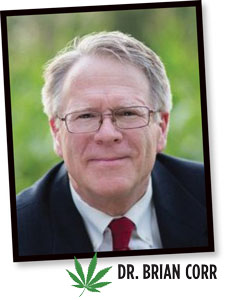3/1/2022
Stats, Econ, and I’ll Be Seeing You
Dr. Brian Corr

(Editor’s note: We’d like to thank Dr. Corr for contributing his expertise to GrowerTalks and Inside Grower for the last few years. We wish him well in his new endeavor and know we’ll see him on the road soon!—JZ)
Nicholas Kristof, former opinion writer and current candidate (maybe) for Oregon governor, once wrote a column called, “The Four Secrets of Success.”
Were these things never secrets and therefore the title is misleading, or were they only secrets until he blew their cover? Regardless, I’m a sucker for reading what folks pass for advice. I might even heed some of their advice. More on that later ...
Kristof’s first secret is to take classes in economics and statistics. Really? That’s all? That’s the entire first secret?
I suppose it’s good advice since it’s turned out well for hortistician Dr. Marvin Miller and ag economist extraordinaire Dr. Charlie Hall. But are stats and econ classes a full quarter of the secrets for success?
After item number one, the advice from Kristof gets more interesting: connect to a cause greater than yourself, pick a good partner and escape your comfort zone. But that first one caught my attention.
I’m not sure statistics or economics classes are essential when starting a cannabis business, but a fundamental understanding of both certainly is helpful.
I take as an example the state of Oklahoma. The state has issued approximately 9,000 licenses to grow cannabis for medical use (although not all of the licenses are in operation).
Oklahoma has a population of about 4 million people. The number of people who will qualify for a medical card and eventually request one is difficult to know, but at last report there are approximately 380,000 registered medical cannabis users in OK. How much each user will require is also difficult to know, but a generous estimate would be an average of 30 grams per week per person.
We don’t exactly need statistics or economics classes to figure out there’s a problem here. Basic math will suffice.
If all 380,000 registered users use that generous estimate of 30 grams per week, the weekly consumption will be roughly 11,400 kilograms. That sounds like a lot.
However, a mediocre cannabis grower can produce 2 grams of dried flower per square foot per week. If half of the license holders (4,500) elect to use their license, each grower needs less than 1,300 sq. ft. to meet demand. That’s a pretty small production farm to be profitable factoring in start-up costs, license fees, etc.
Oklahoma is an easy example, but similar problems are arising around the world. In Canada, the cannabis company Hexo is scheduled to “decommission” three sites in early 2022 affecting 155 employees—40,000 sq. ft. in Kirkland Lake, Ontario; 46,000 sq. ft. in Brantford, Ontario; and 255,000 sq. ft. in Stellarton, Nova Scotia.
George Smitherman of the Cannabis Council of Canada was quoted as saying, “Very challenging economic conditions exist for many license holders.”
So maybe some stats or econ classes to encourage a person to estimate consumption, and balance that against production, would be helpful before folks started investing millions of dollars in cannabis production.
In addition to the advice from Kristof, another example of advice-sharing I appreciate is a column written by Mary Schmich, a former columnist for the Chicago Tribune. Her advice was widely distributed, and for some inexplicable reason, often attributed to Kurt Vonnegut.
Her first piece of advice: “Wear sunscreen.” Not bad really. For most of us, that’s probably more important than even taking a stats class.
Among many other important recommendations, she also says to sing, to dance and to “do one thing every day that scares you.”
I think it’s telling that both Kristof and Schmich share similar advice—get outside your comfort zone and do something that scares you. What they’re saying is life is more fun, more interesting—and ultimately more fulfilling—when chances are taken.
People who’ve entered the cannabis industry—whether founders, owners, investors, workers or consultants—have all taken a chance. High-THC cannabis is still federally illegal. Banking, taxes and insurance are challenges. Regulations keep changing. Companies are coming and going; being bought and sold.
I took a chance and started consulting in the cannabis industry almost eight years ago. Now I’m taking another chance and will be decreasing my time in cannabis consulting. I’ll be starting a job managing R&D at an “agriculture innovation center.” It’s going to be a new adventure. I’ll be in a new location working with new people doing new things. Am I ready? As ready as I’ll ever be. Time to do something that scares me (a little) and gets me out of my comfort zone.
Sadly, the result is this will be my last “Corr on Cannabis” column.
That takes me to the last piece of advice from Mary Schmich: “Be careful whose advice you buy, but be patient with those who supply it.” For the past several years I’ve bloviated on all sorts of things cannabis-related. To those of you who have read these columns—thank you for your patience. Thank you for reading. It’s been nice to know these words were going out there and a few folks were taking time to read them.
And one more thing from Schmich: “Be kind to your knees. You’ll miss them when they’re gone.” Yeah, that’s pretty good, too. I think I’ll go take some ibuprofen.
See ya around. GT
Dr. Brian Corr is a consultant with more than four decades of experience in the greenhouse industry. He has advised legal cannabis producers for the last seven years.